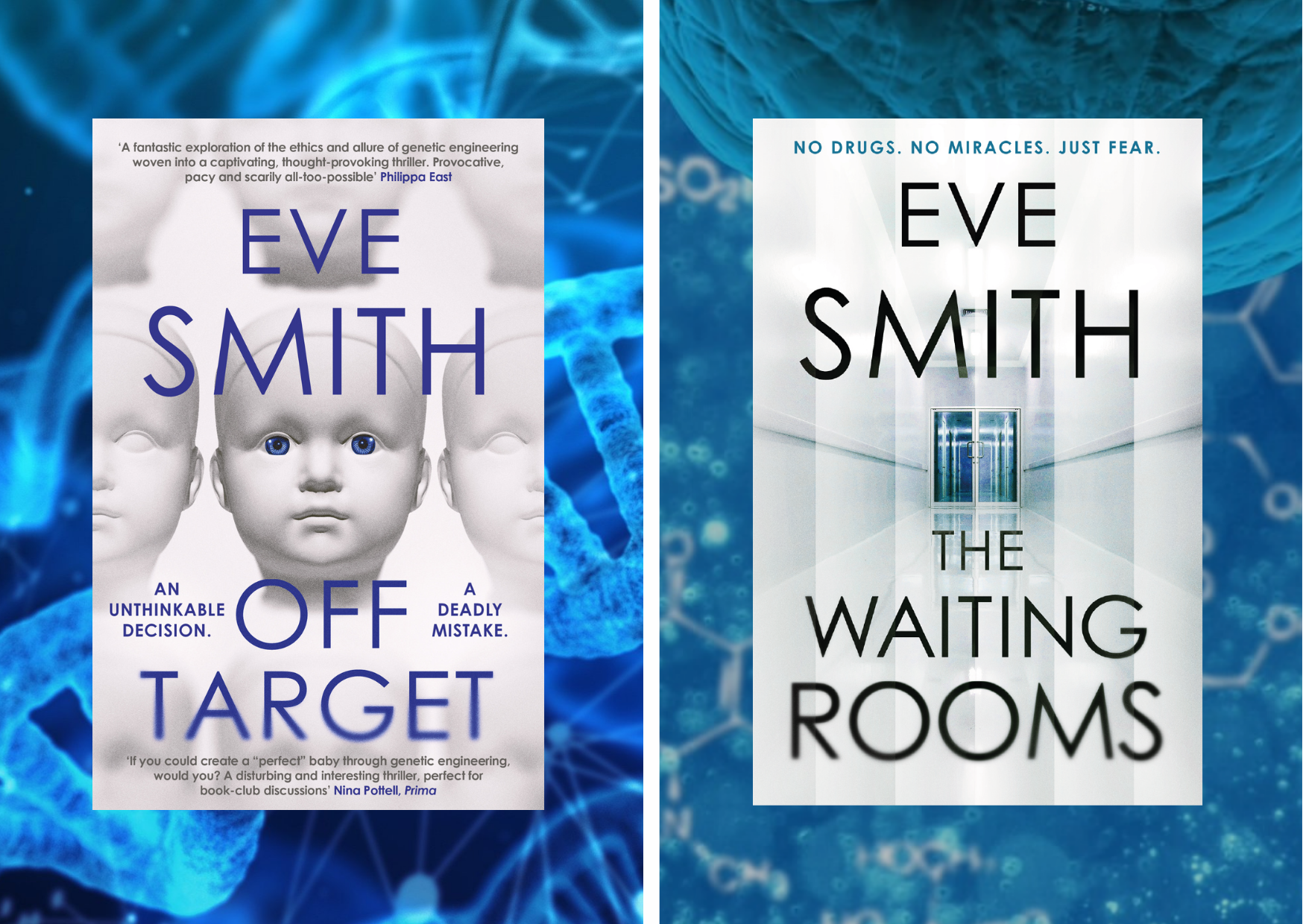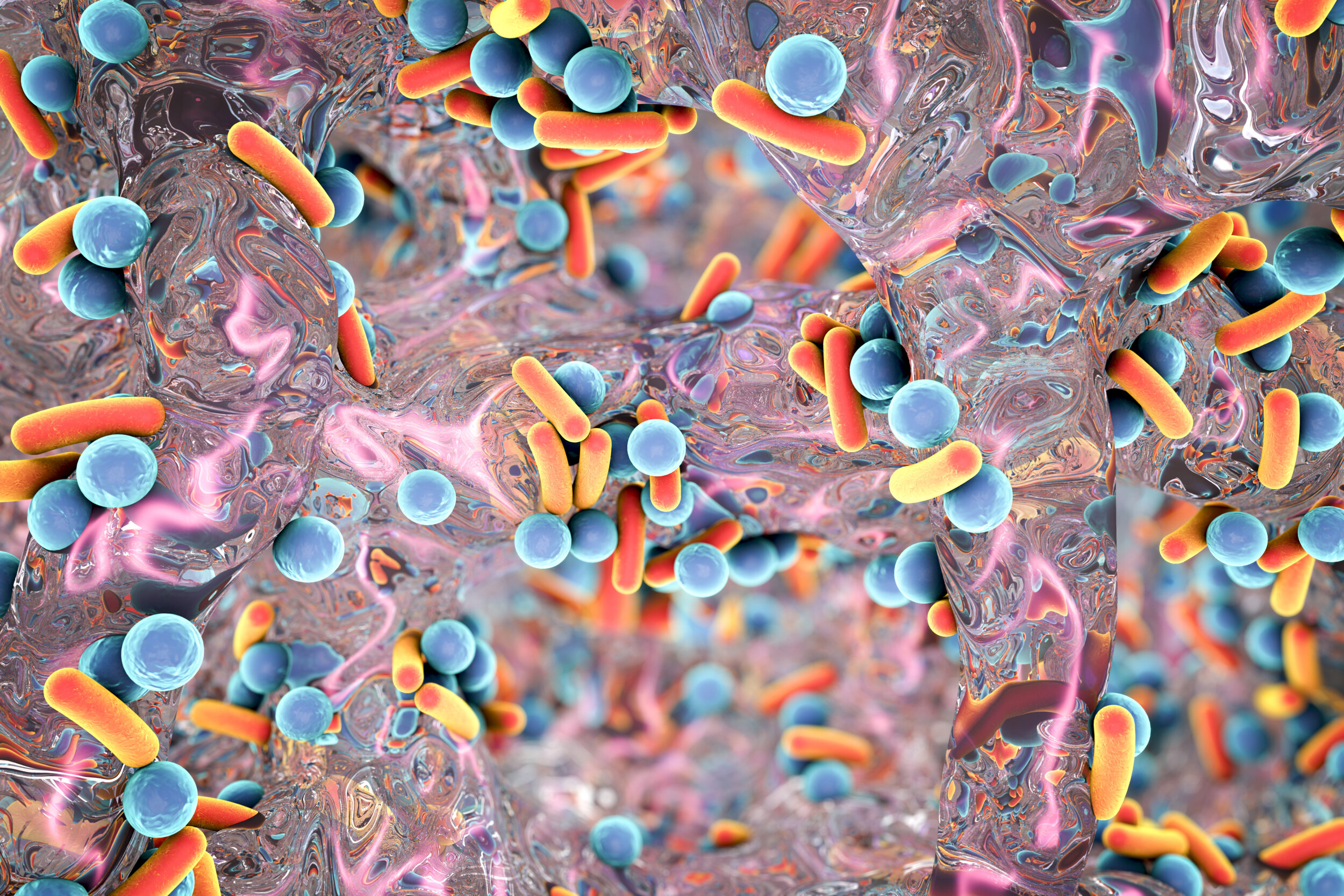WHEN FACT MEETS FICTION
I was at a crime fiction festival last week in Bristol, moderating a panel on ‘Science Fact & Science Fiction’. We had some good discussions, ranging from memory manipulation, to the pet science projects of billionaires, to gene-editing of children and the likely impacts of AI.
One question we debated was whether fiction has a role to play in highlighting issues and potential dangers in society, and if stories can engage people in a way news reporting or non-fiction can’t.
Of course I’m biased, but the consensus seemed to be yes.
I have had two novels published so far, both of which deal with issues that made the news last week.
My second novel, Off Target, is about a world where genetic engineering of babies has become routine. Embryos are edited to prevent heritable diseases and other more questionable conditions being passed down to future generations at the behest of well-intentioned parents. My protagonist, Susan, is faced with a terrible decision and takes things even further, making drastic changes to the paternal DNA of her unborn child.
Last week, the first three-person baby was born in the UK: a feat of genetic prowess, using the procedure MDT. Mitochondrial donation treatment (MDT) aims to stop babies inheriting incurable mitochondrial diseases which can often be terminal, using donor tissue from the egg of another woman during the IVF process. This prevents harmful genetic mutations being passed on from the biological mother, whilst retaining 99.8% of the parents' DNA.
The UK was the first country to legalise MDT, and whilst it does not go as far as the genetic procedures I write about in Off Target, it is still ground breaking, and for most of us, even just two decades ago, such a procedure would have seemed possible only in the realms of fiction.
My debut novel, The Waiting Rooms, is about an antibiotic-resistance crisis that prompts the government to pass a law which sacrifices the elderly to save the rest of the population from untreatable infections.
Last week, a Japanese film called Plan 75 was released in UK cinemas. Plan 75 is set in a near-future Japan that is teetering under the burden of its ageing population, with escalating violence against the elderly, and so the government introduces a programme which incentivises the over-75’s to accept voluntary euthanasia in exchange for a ‘preparatory grant’ of 100,000 yen.
So what, you might say, that’s fiction.
Only since its release in Japan last year, the film has attracted real-life advocates for the state-sponsored euthanasia scheme it presents, and in an interview with The Guardian, the director, Chie Hayakawa said, given the pressures Japan was facing and its attitude towards those vulnerable sectors of society considered ‘socially weak’ or overly dependent on the state, her film was ‘far from impossible’.
In The Waiting Rooms, the choice is even more stark. As new antibiotics are rendered ineffective within a matter of months after a spate of resistant infections, the drugs have to be strictly limited. Society has to make a choice. And who are the biggest users of antibiotics? The very young and the very old.
You can guess who takes the hit.
No one over the age of 70 is allowed new antibiotics. Instead, if they contract an infection, they are sent to hospitals for the elderly, nicknamed ‘The Waiting Rooms’ where they can choose to die a slow, natural death or be assisted in their deaths by trained nurses. Such a concept might have seemed fictional until we saw the tough choices being made in hospitals and care homes around the world when there weren’t enough ventilators or effective medicine during the COVID pandemic.
I started writing The Waiting Rooms eight years ago, way before the coronavirus pandemic, after reading a piece of research commissioned by the UK government which estimated that by 2050, ten million people globally would be dying of antibiotic-resistant infections every year.
Since then, the World Health Organisation has declared it one of the top 10 risks to global health and estimates that 4.9 million deaths annually are associated with antimicrobial resistance (AMR).
And it's not just overuse of antibiotics in healthcare and agriculture that is fuelling the problem. Climate change and pollution of our environment are accelerating the spread according to a UN report released in February this year. Pollution of waterways by hospital wastewater, run-off from pharmaceutical production and agricultural treatments, together with pollutants from poor sanitation, sewage and waste effluent in municipal systems are all making things worse.
“We are confronted by a silent, slow-motion pandemic.
Our greatest fear is that [AMR] may well become the leading cause of death in the world.”
The director of Plan 75 said she specifically made her film to avoid a state-sponsored euthanasia programme becoming a reality in Japan.
I’d like to think that breathing life into possible futures in the pages of my books could ward off those futures too, although as the great Margaret Atwood said, when asked if The Handmaid’s Tale was a prediction of events unfurling in America today:
“No, it isn’t a prediction, because predicting the future isn’t really possible: There are too many variables and unforeseen possibilities. Let’s say it’s an antiprediction: If this future can be described in detail, maybe it won’t happen. But such wishful thinking cannot be depended on either.”
Unfortunately, I tend to agree.
For more information about my books, including my latest speculative thriller One set in one-child policy Britain which is out this July, you can visit here.




